This study analyzes the extent to which the India program is meeting the World Bank’s objective of mainstreaming participatory approaches in project preparation and design. It includes ten projects in which participation was an overall project objective. These projects provided “good practice” lessons from a variety of social and natural resource management sectors.
Participation in Project Preparation: Lessons from World Bank-Assisted Projects in India (World Bank Discussion Papers)
KSh 1,000.00
This study analyzes the extent to which the India program is meeting the World Bank’s objective of mainstreaming participatory approaches in project preparation and design. It includes ten projects in which participation was an overall project objective. These projects provided “good practice” lessons from a variety of social and natural resource management sectors.
1 in stock
Related products
-
Psychology: The Science of Mind and Behaviour 4e
KSh 8,960.00Psychology: The Science of Mind and Behaviour fourth edition has been fully updated to reflect new developments in the field. Its celebrated pedagogical design has been reinforced with key research, issues and offers an exciting and engaging introduction to the study of psychology.The scientific approach brings together international research, practical application and the levels of analysis framework to encourage critical thinking about psychology and its impact on our daily lives. Key features:•Brand new! Psychology at Work interviews from Psychologists in the field provide a glimpse of their day-to-day work and the career path they have taken since completing a psychology degree. •Research Close Ups reflect new research and literature as well as brand new critical thinking questions to increase analysis and evaluation of the findings. •Core subject updates such as DSM-5 for psychological disorders. •Current issues and hot topics such as, social media, prosociality, critical perspectives of positive psychology and coverage of the replication crisis to prompt debates on the questions facing psychologists today.•Focus Arrow Boxes encourage critical analysis and application of the text.
-
Men In Love
KSh 650.00This is a book about men who love women. But it is not a collection of love stories. It is a study of the secret, erotic fantasies that men have always kept hidden, a taboo-shattering investigation that reveals the deepest, most conflicting feelings that men have about women, men and their own sexuality.
Men in Love goes beyond the socio-sexual cliché of woman seen as either madonna or whore to reveal the conflict of love and rage at the centre of men’s emotions and erotic desires. Based on thousands of candid responses from men ranging from their teens to their sixties, Men in Love – startling and shocking – will change men’s deepest feelings about their sexuality and make the women who care about them understand them as never before.
-
Microwave Techniques: Transmission Lines
KSh 4,000.00Reading books is a kind of enjoyment. Reading books is a good habit. We bring you a different kinds of books. You can carry this book where ever you want. It is easy to carry. It can be an ideal gift to yourself and to your loved ones. Care instruction keep away from fire.
-
Security Studies
KSh 5,740.00Security Studies: An Introduction, 3rd edition, is the most comprehensive textbook available on the subject, providing students with an essential grounding in the debates, frameworks, and issues on the contemporary security agenda.
This new edition has been comprehensively revised and updated, with new chapters added on poststructuralism, postcolonialism, securitization, peace and violence, development, women, peace and security, cybersecurity, and outer space.
Divided into four parts, the text provides students with a detailed, accessible overview of the major theoretical approaches, key themes, and most significant issues within security studies.
- Part 1 explores the main theoretical approaches from both traditional and critical standpoints
- Part 2 explains the central concepts underpinning contemporary debates
- Part 3 presents an overview of the institutional security architecture
- Part 4 examines some of the key contemporary challenges to global security
Collecting these related strands into a single textbook creates a valuable teaching tool and a comprehensive, accessible learning resource for undergraduates and MA students.
-
The Autobiography of Malcolm X
KSh 1,695.00Malcolm X’s The Autobiography of Malcolm X was written in collaboration with Alex Haley, author of Roots, and includes an introduction by Paul Gilroy, author of The Black Atlantic, in Penguin Modern Classics.
From hustling, drug addiction and armed violence in America’s black ghettos Malcolm X turned, in a dramatic prison conversion, to the puritanical fervour of the Black Muslims. As their spokesman he became identified in the white press as a terrifying teacher of race hatred; but to his direct audience, the oppressed American blacks, he brought hope and self-respect. This autobiography (written with Alex Haley) reveals his quick-witted integrity, usually obscured by batteries of frenzied headlines, and the fierce idealism which led him to reject both liberal hypocrisies and black racialism.
Vilified by his critics as an anti-white demagogue, Malcolm X gave a voice to unheard African-Americans, bringing them pride, hope and fearlessness, and remains an inspirational and controversial figure.
Malcolm X (1925-65), born Malcolm Little in Omaha, and also known as El-Hajj Malik El-Shabazz, lost both his parents at a young age. Leaving school early, he soon became part of Harlem’s underworld, and in 1946 he was sentenced to ten years’ imprisonment. It was in prison that Malcolm X converted to Islam. Paroled in 1952, he became an outspoken defender of Muslim doctrines, formed the Organization of Afro-American Unity in 1963, and had received considerable publicity by the time of his assassination in 1965.
If you enjoyed The Autobiography of Malcolm X, you might like Nelson Mandela’s No Easy Walk to Freedom, also available in Penguin Modern Classics.
‘This extraordinary autobiography is a brilliant, painful, important book’
The New York Times -
Peace Kills – Softcover800
KSh 500.00In this latest collection of adventures, P. J. O’Rourke casts his mordant eye on America’s recent foreign policy forays. He first travels to Kosovo where he meets KLA veterans, Albanian refugees and peacekeepers, and confronts the paradox of ‘the war that war-haters love to love’. He visits Egypt, Israel and Kuwait, where he witnesses citizens enjoying their newfound freedoms – namely, to shop, to eat and to sit around a lot. Following 11 September, O’Rourke examines the far-reaching changes in the US, from the absurd hassles of airport security to the dangers of anthrax. In Iraq, he witnesses both the beginning and the end of Operation Iraqi Freedom and takes a tour of a presidential palace, concluding that the war was justified for at least one reason: criminal interior decorating.
Peace Kills is an eye-opening look at a world much changed since O’Rourke wrote his bestselling Give War A Chance – a book in which he presciently declared that the most troubling aspect of war is sometimes peace itself.
-
The Ethnographic Imagination
KSh 1,200.00In this book Paul Willis, a renowned sociologist and ethnographer, aims to renew and develop the ethnographic craft across the disciplines. Drawing from numerous examples of his own past and current work, he shows that ethnographic practice and the ethnographic imagination are vital to understanding the creativity and irreducibility of experience in all aspects of social and cultural practice.
Willis argues that ethnography plays a vital role in constituting ‘sensuousness’ in textual, methodological, and substantive ways, but it can do this only through the deployment of an associated theoretical imagination which cannot be found simply there in the field. He presents a bold and incisive ethnographically oriented view of the world, emphasizing the need for a deep-running social but also aesthetic sensibility. In doing so he brings new insights to the understanding of human action and its dialectical relation to social and symbolic structures. He makes original contributions to the understanding of the contemporary human uses of objects, artefacts and communicative forms, presenting a new analysis of commodity fetishism as central to consumption and to the wider social relations of contemporary societies. He also utilizes his perspective to further the understanding of the contemporary crisis in masculinity and to cast new light on various lived everyday cultures – at school, on the dole, on the street, in the Mall, in front of TV, in the dance club.
This book will be essential reading for all those involved in planning or contemplating ethnographic fieldwork and for those interested in the contributions it can make to the social sciences and humanities.
-
21 Lessons for The 21St Century Paperback
KSh 1,695.00The future is here. Learn to live in it.
In twenty-one bite-sized lessons, Yuval Noah Harari explores what it means to be human in an age of bewilderment.
How can we protect ourselves from nuclear war, ecological cataclysms and technological disruptions? What can we do about the epidemic of fake news or the threat of terrorism? What should we teach our children?
Yuval Noah Harari takes us on a thrilling journey through today’s most urgent issues. The golden thread running through his exhilarating new book is the challenge of maintaining our collective and individual focus in the face of constant and disorienting change. Are we still capable of understanding the world we have created?
‘Fascinating… compelling… [Harari] has teed up a crucial global conversation about how to take on the problems of the 21st century’ Bill Gates, New York Times
‘Truly mind-expanding… Ultra-topical’ Guardian
‘21 Lessons is, simply put, a crucial book’ Adam Kay

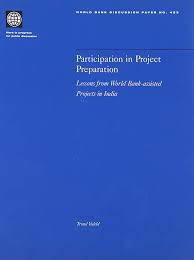
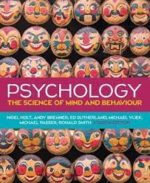



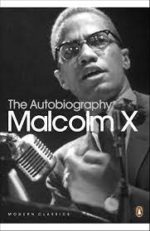
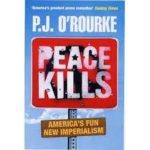
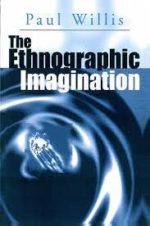
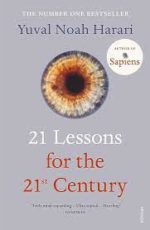
Be the first to review “Participation in Project Preparation: Lessons from World Bank-Assisted Projects in India (World Bank Discussion Papers)”